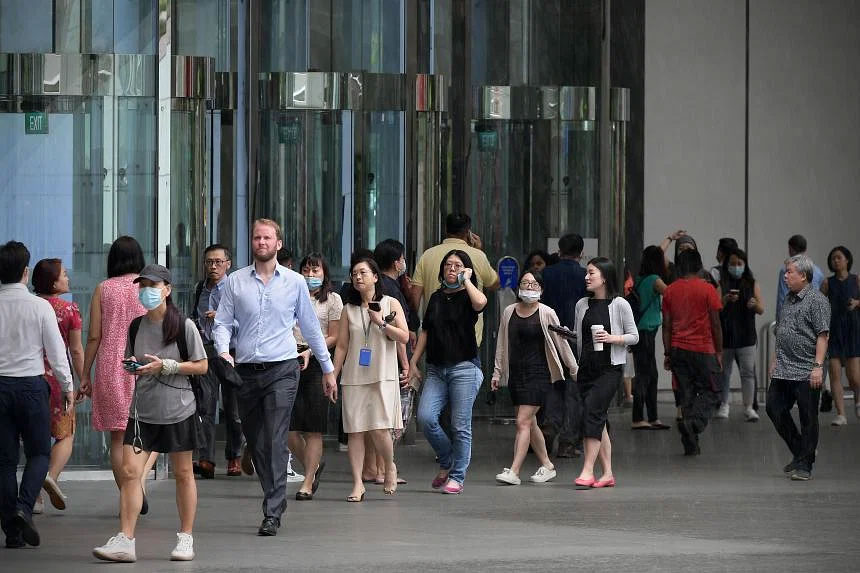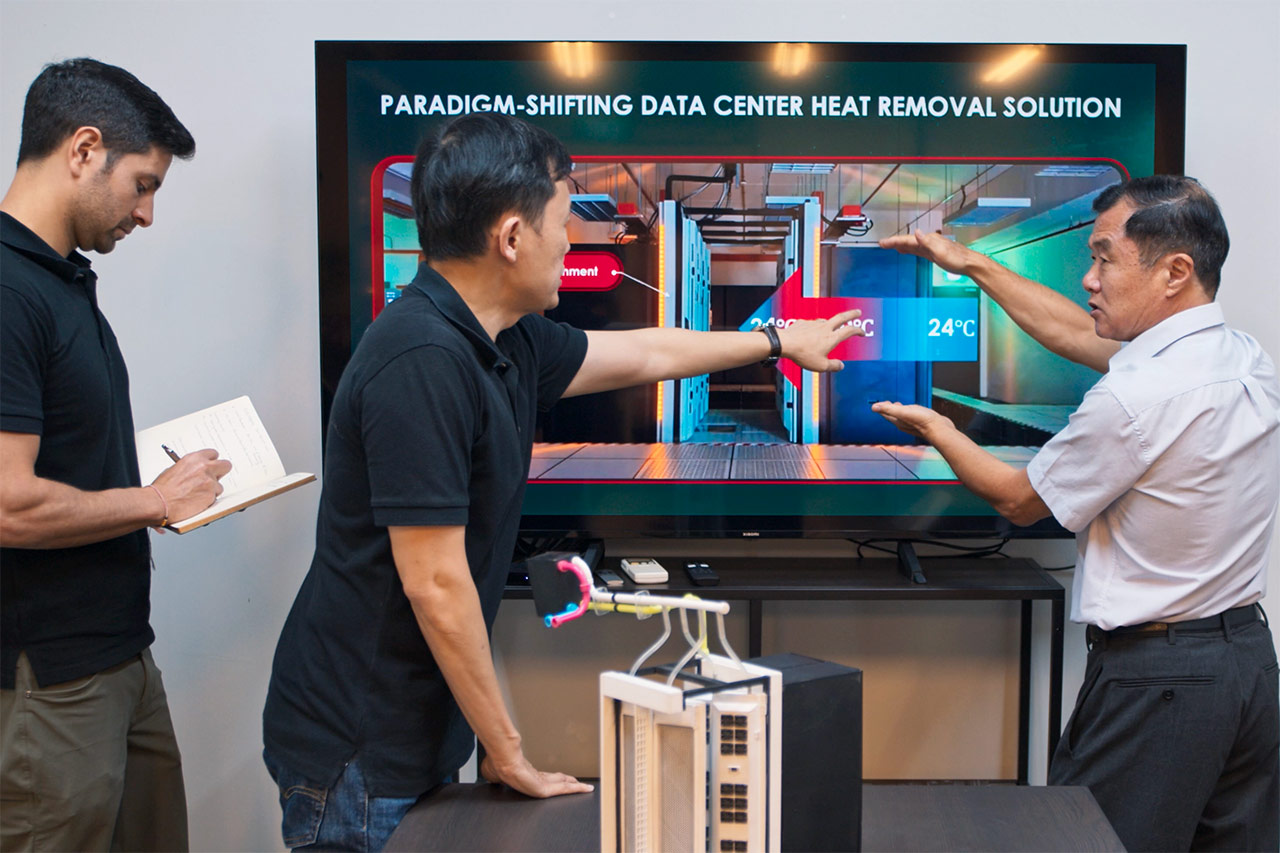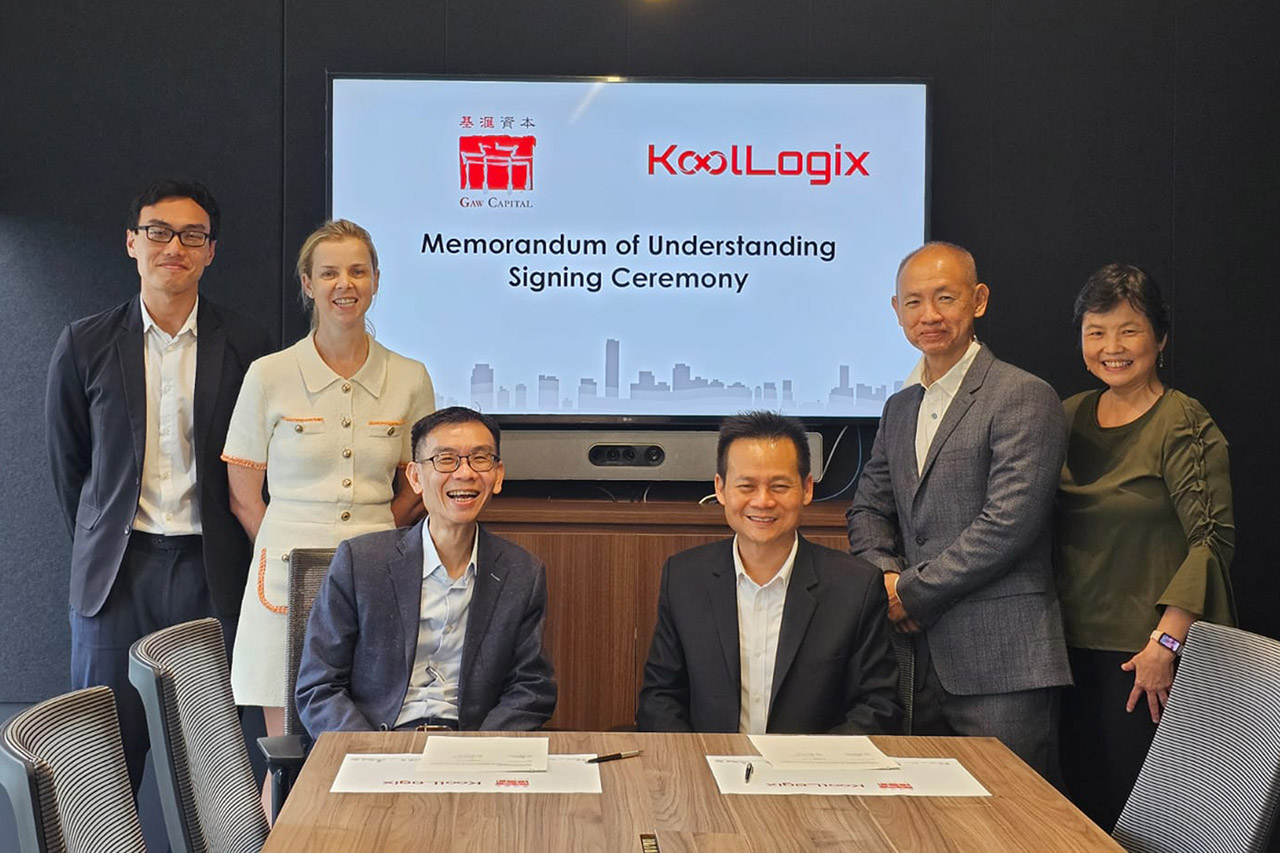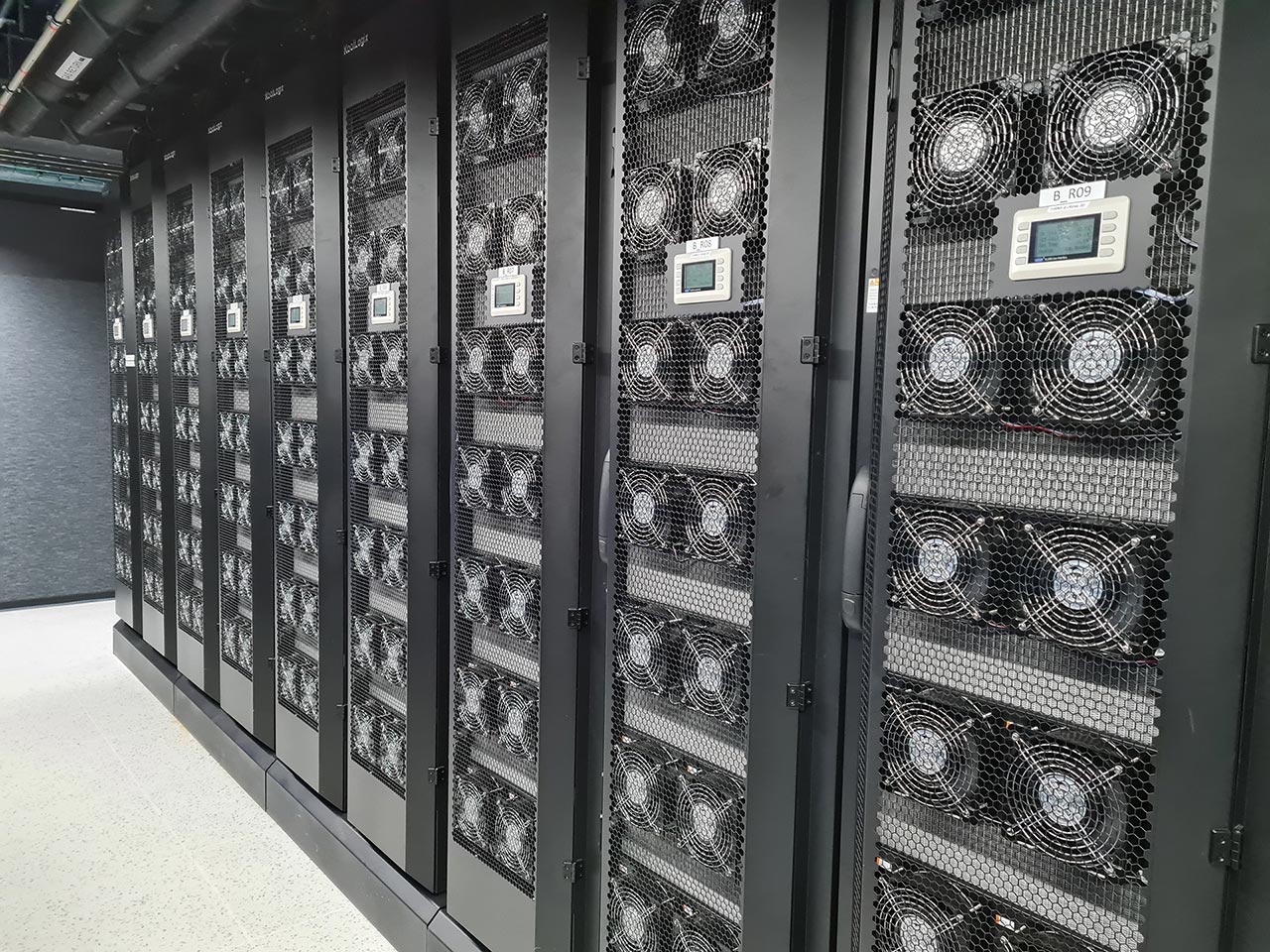These activities are expected to create $17.8 billion in value-add and 23,800 skilled jobs for the Singapore economy. ST PHOTO: NG SOR LUAN
SINGAPORE – Staff working at food and beverage stall Mr Coconut, popular for its coconut shakes, no longer need to manually open the fruit to extract its contents.
A customised automatic coconut shell opener co-developed by Mr Coconut and the Food Innovation and Resource Centre has taken over the laborious and time-consuming process.
This has helped Mr Coconut to increase its operational efficiency by more than 700 per cent in 2022, triple its revenue within a year and grow from a single retail outlet at Far East Plaza in 2016 to 48 stores islandwide today.
The company plans to open five to eight more stores in 2023.
Mr Coconut is just one of the 18,100 local enterprises who worked with Enterprise Singapore (EnterpriseSG) in 2022 on projects to build new business capabilities, innovate and expand overseas.
These activities are expected to create 23,800 skilled jobs and $17.8 billion in value for the Singapore economy, EnterpriseSG said on Wednesday in their year in review report.
In 2022, EnterpriseSG helped 2,000 enterprises embark on internationalisation activities.
This was a 25 per cent increase from 2021, reflecting businesses’ eagerness to expand their markets and explore overseas opportunities after border closures over the past three years, it said.
Of these, 900 explored opportunities overseas for the first time.
One such company, digital health start-up Oncoshot, which matches patients with suitable clinical trials, expanded overseas for the first time, to Australia, in 2022.
South-east Asia remained the top destination market, but more companies ventured further afield into the United States, Europe, Latin America, the Middle East and Africa, EnterpriseSG said.
The agency enabled 2,700 tech start-ups to gain access to funding, incubation and mentorship through its Startup SG programmes and assistance from partners.
Around 700 enterprises undertook innovation projects to develop new products and solutions to sharpen their competitive edge.
Three new Centres of Innovation, focusing on the built environment, beauty and personal care, and urban agriculture, were established. They will support up to 1,500 Singapore enterprises over the next five years.
One example is Ento Industries, a biotech company that makes use of black soldier flies to upcycle food waste.
“With our support, the company partnered with ITE College Central to develop a modular food waste bioconversion system for the processing and treatment of food waste,” said Mr Png Cheong Boon, chief executive of EnterpriseSG, at a media briefing on Wednesday.
Despite economic challenges, improvements in productivity continued to be a key focus. About 17,200 enterprises embarked on productivity projects to upgrade and transform their business.
For instance, traditional textile retailer Zee Shan Impex had to accelerate its digital transformation during the Covid-19 pandemic as footfall fell.
The company launched a new website, signed on e-commerce platforms like Shopee Mall and Lazada, and marketed products on Facebook and Instagram live stream, resulting in a 35 per cent increase in sales.
Moving forward, in 2023, EnterpriseSG said it will continue to intensify internationalisation efforts to help enterprises strengthen their supply chains and achieve scale, as well as diversify their business in overseas markets.
Different markets present different opportunities, said EnterpriseSG chairman Peter Ong.
For instance, there are the mainstay markets like China and South-east Asia, which Singapore companies have traditionally gone to and are familiar with due to proximity and affinity.
These already form the bulk of companies’ internationalisation efforts.
Said Mr Ong: “South-east Asia is the bright spot relative to slower growth elsewhere. Its large and growing middle class offers good potential for those in the consumer-related, digital and sustainable infrastructure sectors. China is reopening rapidly, with opportunities in the green economy, innovation, and trade and logistics.”
Markets with specific focus such as the US and Europe provide sources of technology and innovation in areas such as automation, advanced manufacturing and sustainability, and emerging markets like Africa and Latin America will allow entrepreneurial companies to enjoy an early mover advantage, he added.
The agency will also help enterprises accelerate innovation and acquire sustainability capabilities.
“Sustainability is now front and centre in many global conversations, and a dominant force driving industry trends… But we recognise that the green transition is not always straightforward. Many enterprises find it difficult to start,” Mr Ong said.
The Enterprise Sustainability Programme (ESP) launched in 2021 has helped many companies in 2022.
For instance, KoolLogix, a provider of heat removal solutions for data centres, accessed green loans to accelerate the deployment of its new test lab facility, giving the company increased capacity to innovate on its energy-efficiency solutions, Mr Ong said.
Beyond raising awareness, EnterpriseSG will also look at building new capabilities in areas such as sustainability standards and carbon accounting.

This article is from The Straits Times (Retrieved 03 Feb 2023)





